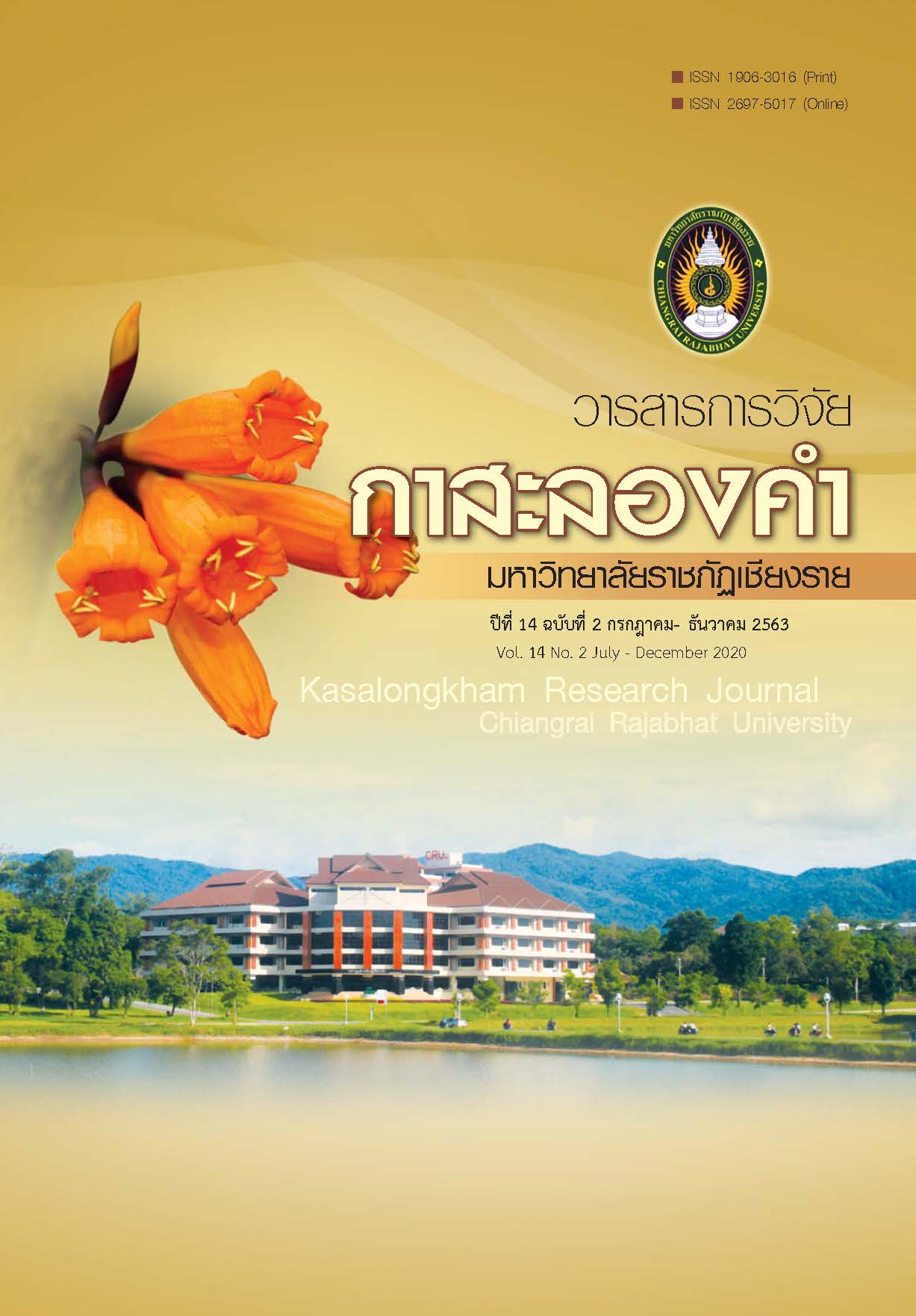Implementation of Flash Cards to Teach Advanced Thai Language for Chinese Learners
Keywords:
บัตรคำ, การสอนภาษาไทยสำหรับชาวต่างประเทศ, ผู้เรียนชาวจีน, การเรียนอย่างมีส่วนร่วมAbstract
Abstract
The objective of this article was to explain the implementation of Thai language flash card to foreign learner to teach Thai language. Population was 15 Chinese students who studied in level 4 of intensive course. Research tool was 6 categories of flash cards (food, people, day, things, question words and places). The process of learning management in effective way consisted of reviewing vocabulary, new-grouping by meaning of flash cards, rapid speaking, classifying flash card into the box, making a paragraph with words from given flash cards, and joining into the group for creating a story by using all flash cards from everyone. Result of study after implementation found that all learners participated in activity and they used techniques to help their friends to remember the sentences in order to tell a story successfully. The verification was held after 2 days of learning ended, it found that the learners could remember words, meanings, and write the story from flashcard correctly.
References
Aliponga, J. & Johnston C.C. (2013). Benefits of Using Vocabulary Flash Cards in an EFL Classroom. 关西国际大学研究纪要 第14号,1-6.
Baleghizadeh, S. & Ashoori, A. (2011). The Impact of Two Instructional Techniques on EFL Learners’ Vocabulary Knowledge: Flash Cards versus Word Lists. Mextesol. 35(2), 1-9.
Department of Mental Health. (2001). Handbook of Participatory Training (4th ed.). Bangkok: Wongkamol Production, Ltd.
Eli Hinkel. (2015). Effective Curriculum for Teaching L2 Writing: Principles and Techniques. ESL & Applied Linguistics Professional Series. New York: Routledge.
Inayah, S. (2010). Using Flash Card to Improve Students’ Understanding on Present Continuous Tense. Bachelor degree, (B.Ed.), Walisongo State for Islamic Studies, Semarang.
Komachali, M.E. & Khodareza, M. (2012). The Effect of Using Vocabulary Flash Card on Iranian Pre-University Students’ Vocabulary Knowledge. International Education Studies. 5(3), 134-147.
Kupzyk, S., Daly, E.J., and Andersen, M.N. (2011). A Comparison of Two-Flash Card Methods for Improving Sight – Word Reading. Journal of Applied Behavior Analysis. 44(4), 781-792.
Lee, H. K. T., Lu, C. H., Hsu, W. L., Lu, C. C., & Tang, W. C. (2014). Using Adaptive Learning Theory and a Schedule-based Flashcard to Enhance the Quality of Online Self Learning. Retrieved
March 1, 2015, from http://www.iis.sinica.edu.tw/IASL/webpdf/paper-2011Using_Adaptive_Learning_%20Theory_and_a_Schedulebased_Flashcard_to_Enhance_the_Quality%20_of_Online_Self_Learning.pdf
Phillips, W.E., and Feng, J. (2012). Methods for Sight Word Recognition in Kindergarten: Traditional Flashcard Method vs. Multisensory Approach. Paper presented at the 2012 Annual Conference of Georgia Educational Research Association, October 18-20, 2012. Savannah, Georgia.
Pusurinkam, S. (June 13, 2008). Principle of Participatory Learning. Retrieved March 1, 2015, from http://opalnida.blogspot.com/2008/06/blog-post_13.html [In Thai].
Sarikbutr (Lecturer), (December 12-14, 2008). Techniques of Teaching Basic Communicative Thai Language as a Foreign Language. Teaching Thai as a Foreign Language Workshop Generation 2. Faculty of Humanities, Kasetsart University.


 e-ISSN:
e-ISSN: 


